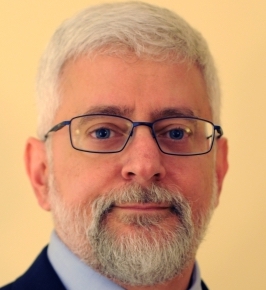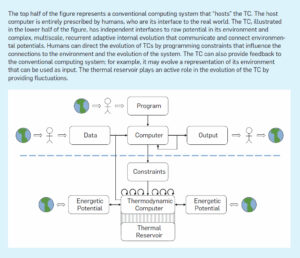
Mark Hill

Tom Conte

Todd Hylton
The June issue of the Communications of the ACM (CACM) features the Viewpoint article “A Vision to Compute Like Nature: Thermodynamically.” Based on the Computing Community Consortium’s (CCC) Thermodynamic Computing workshop, this article advocates for a novel, physically grounded, computational paradigm centered on thermodynamics that the authors call “Thermodynamic Computing” (TC).
This Viewpoint was written by workshop co-organizers, Todd Hylton (UC San Diego), Tom Conte (Georgia Tech), and Mark D. Hill (Microsoft & U. Wisconsin). In the article, they lay out the premise of TC: “…living systems evolve energy-efficient, universal, self-healing, and complex computational capabilities that dramatically transcend our current technologies. Animals, plants, bacteria, and proteins solve problems by spontaneously finding energy-efficient configurations that enable them to thrive in complex, resource-constrained environments. For example, proteins fold naturally into a low-energy state in response to their environment. In fact, all matter evolves toward low-energy configurations in accord with the Laws of Thermodynamics.”

Figure 1. Conceptual schematic for a Thermodynamic Computing system.
What if we designed computing systems to solve problems through a similar process? The writers “envision a thermodynamic computing system (TCS) as a combination of a conventional computing system and novel TC hardware. The conventional computer is a “host” through which users can access the TC and define a problem for the TC to solve. The TC, on the other hand, is an open thermodynamic system directly connected to real-world input potentials (for example, voltages), which drive the adaptation of its internal organization via the transport of charge through it to relieve those potentials.”
Read the full Viewpoint article here and the Thermodynamic Computing workshop report here. You can hear more from the workshop organizers and participants in episodes 3 and 4 of the CCC’s official podcast, Catalyzing Computing.









